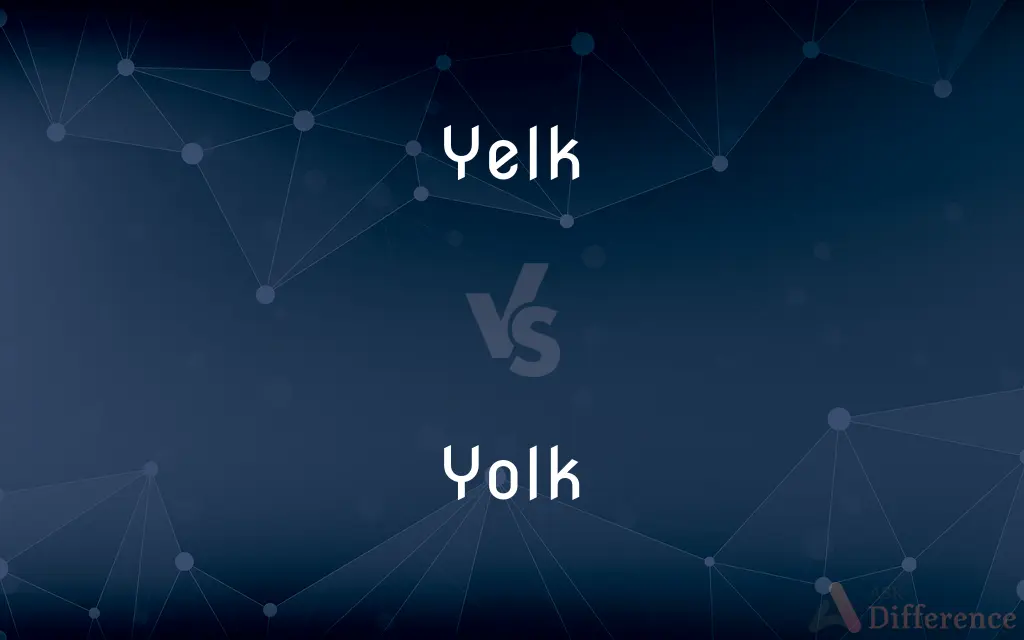Yelk vs. Yolk — What's the Difference?

Difference Between Yelk and Yolk
ADVERTISEMENT
Compare with Definitions
Yelk
Obsolete form of yolk
Yolk
Among animals which produce eggs, the yolk (; also known as the vitellus) is the nutrient-bearing portion of the egg whose primary function is to supply food for the development of the embryo. Some types of egg contain no yolk, for example because they are laid in situations where the food supply is sufficient (such as in the body of the host of a parasitoid) or because the embryo develops in the parent's body, which supplies the food, usually through a placenta.
Yelk
Same as Yolk.
Yolk
The yellow internal part of a bird's egg, which is surrounded by the white, is rich in protein and fat, and nourishes the developing embryo
Two yolks
A mass of yolk
Yolk
The portion of the egg of egg-laying vertebrates, such as reptiles and birds, and of certain invertebrates that consists chiefly of protein and fat and serves as the primary source of nourishment for the early embryo.
ADVERTISEMENT
Yolk
This portion of the egg of a bird, especially a chicken, which is large, yellow, and surrounded by albumen.
Yolk
A greasy substance found in unprocessed sheep's wool, which is refined to make lanolin.
Yolk
The yellow, spherical part of an egg that is surrounded by the white albumen, and serves as nutriment for the growing young.
To make meringue, you have to separate the white from the yolk.
Egg white
Yolk
The grease in a sheep's fleece; lanolin.
Yolk
The yellow part of an egg; the vitellus.
Yolk
An oily secretion which naturally covers the wool of sheep.
Yolk
Nutritive material of an ovum stored for the nutrition of an embryo (especially the yellow mass of a bird or reptile egg)
Share Your Discovery

Previous Comparison
Story vs. Poem
Next Comparison
Logic vs. Intuition














































